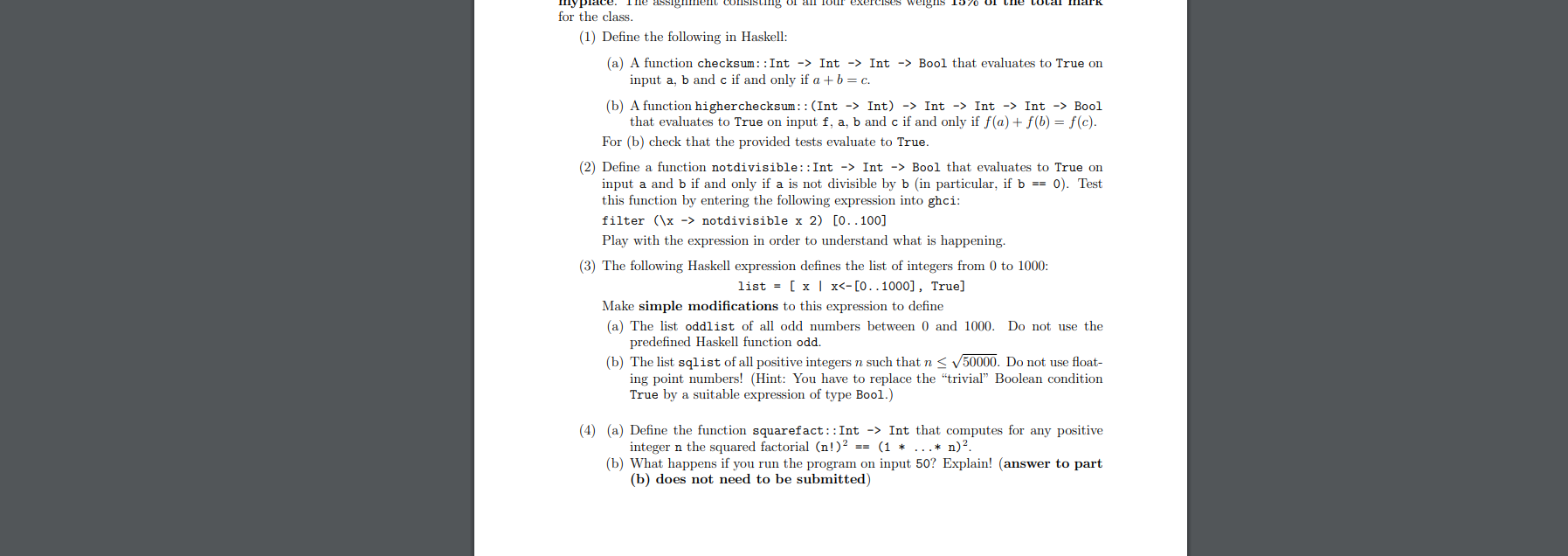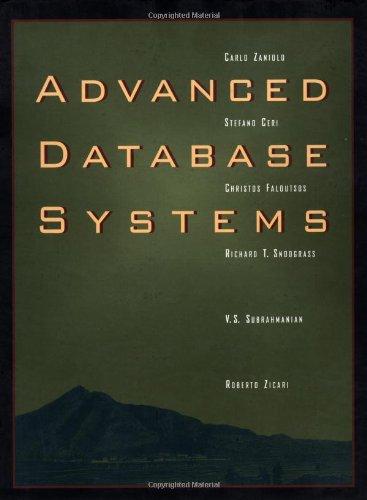Answered step by step
Verified Expert Solution
Question
1 Approved Answer
=Question 4 only part a weighs 1370 01 place. Ihe assignment COLISIsung 01 all ou for the class. (1) Define the following in Haskell: (a)
 ="Question 4" only part a
="Question 4" only part a
Step by Step Solution
There are 3 Steps involved in it
Step: 1

Get Instant Access to Expert-Tailored Solutions
See step-by-step solutions with expert insights and AI powered tools for academic success
Step: 2

Step: 3

Ace Your Homework with AI
Get the answers you need in no time with our AI-driven, step-by-step assistance
Get Started


